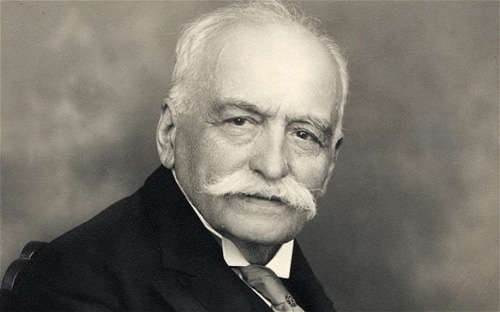Who was the first well-known chef in the field of Gastronomy?
The title of the first well-renowned chef in the world of gastronomy is often attributed to Georges Auguste Escoffier, a French chef, restaurateur, and culinary writer who revolutionized French cuisine and set standards that are still practiced in professional kitchens today. Born on October 28, 1846, Escoffier began his illustrious career at a young age and went on to popularize and modernize traditional French cooking methods. His work was heavily influenced by Marie-Antoine Carême, another pivotal figure in the culinary world, known as the ‘chef of kings and king of chefs’. Escoffier simplified Carême’s elaborate and ornate style, creating the ‘brigade de cuisine’, a system that organized kitchen staff in a hierarchical structure that is still used in many restaurants worldwide. Escoffier’s legacy is also upheld in culinary schools around the globe, where his techniques and principles form the foundation of professional culinary education.

The Lasting Impact of Auguste Escoffier and Bartolomeo Scappi on Gastronomy
Escoffier’s partnership with hotelier César Ritz led to significant culinary advancements in prestigious establishments such as the Savoy in London and the Ritz Hotel in Paris. His book, ‘Le Guide Culinaire’, remains a fundamental reference for chefs globally. Escoffier’s legacy extends beyond his recipes and kitchen management techniques; he also demanded discipline and professionalism in the kitchen, transforming it from a place of chaos to one of order and efficiency. His influence on the culinary arts is immeasurable, and his principles continue to shape the gastronomic world to this day.
Another notable figure is Bartolomeo Scappi, who is credited with compiling the first known cookbook, ‘Opera Dell’arte del Cucinare’, published in 1577. This comprehensive work contained over one thousand recipes and even included the first known illustration of a fork. Scappi’s contributions laid the groundwork for the recipe collections that would become a staple in households and professional kitchens alike.
Revolutionizing Culinary Arts and Establishing Timeless Kitchen Standards
The evolution of gastronomy is marked by the contributions of these pioneering chefs, who not only refined cooking techniques and recipes but also elevated the status of the chef from a mere cook to an artist and scientist. Their legacies are a testament to the enduring power of culinary innovation and the role of chefs in shaping cultural and social norms around dining and cuisine. The world of gastronomy continues to evolve, but the foundations laid by chefs like Escoffier and Scappi remain at the heart of culinary excellence. Their stories are not just about food but about the transformation of cooking into an art form that delights and inspires people across the globe. For those aspiring to follow in their footsteps, offered the chef courses in Lahore provide an excellent opportunity to learn and master the skills that define culinary greatness.
Their influence is felt in every aspect of modern gastronomy, from the way we organize our kitchens to the creative presentation of dishes that continue to amaze diners worldwide. The first renowned chefs in the world of gastronomy have left an indelible mark on history, and their innovations continue to influence chefs and food enthusiasts to this day.
The Enduring Legacy of Escoffier and Scappi in Culinary Excellence
Auguste Escoffieris credited with numerous famous dishes that have become staples in the culinary world. One of his most iconic creations is the Peach Melba, a dessert made of peaches, raspberry sauce, and vanilla ice cream, which he crafted in honor of the Australian opera singer Nellie Melba. Another notable dish is the Melba toast, thin and crisp toast that is still a popular accompaniment for soups and salads. Escoffier was also instrumental in popularizing the concept of ‘mother sauces’ from which a multitude of other sauces are derived. These include Sauce Espagnole, a rich brown sauce, and Sauce Velouté, a light stock-based sauce, both of which form the foundation for many other classic French sauces.
Author


